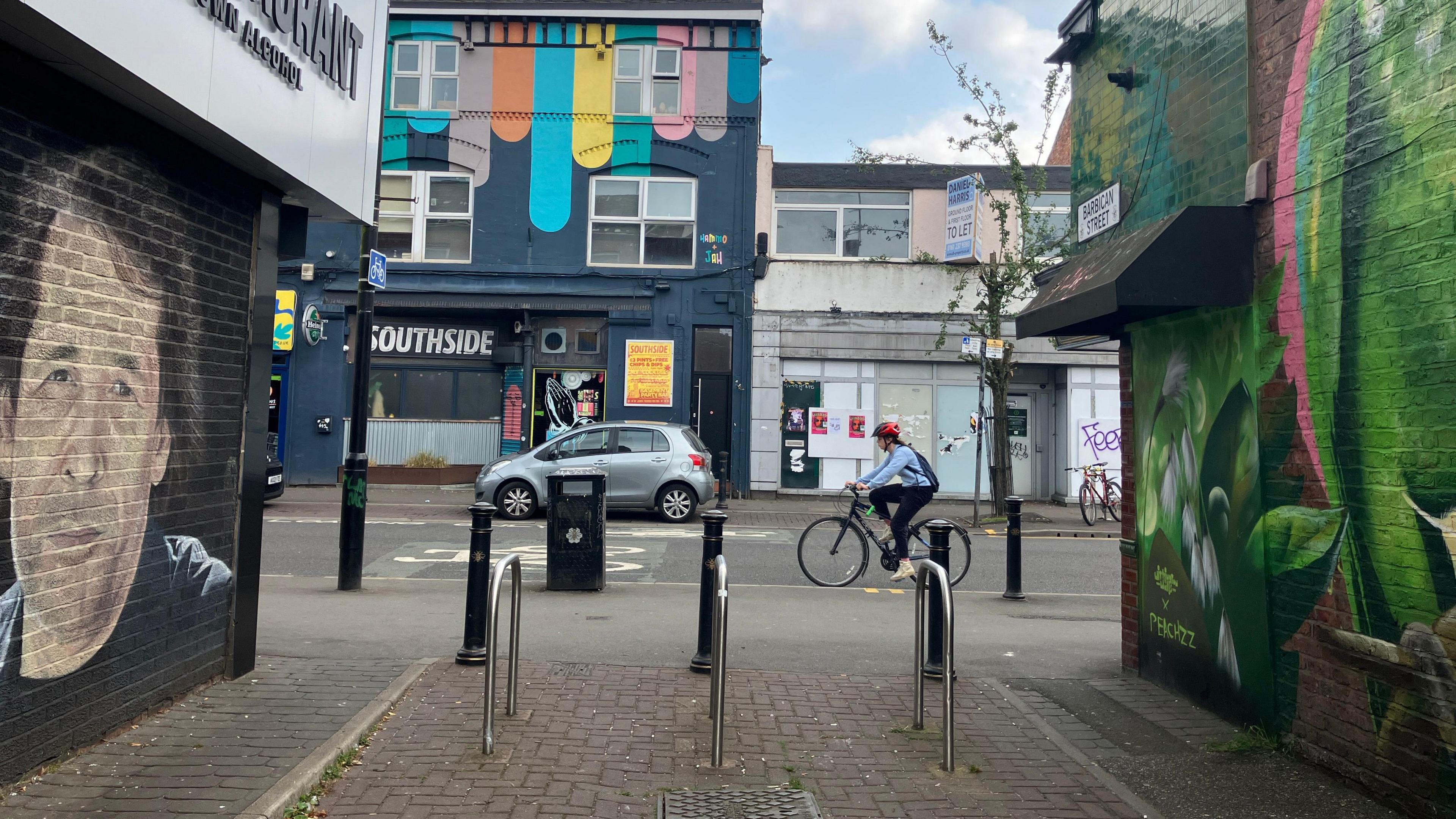'Our town is dying from the inside out'
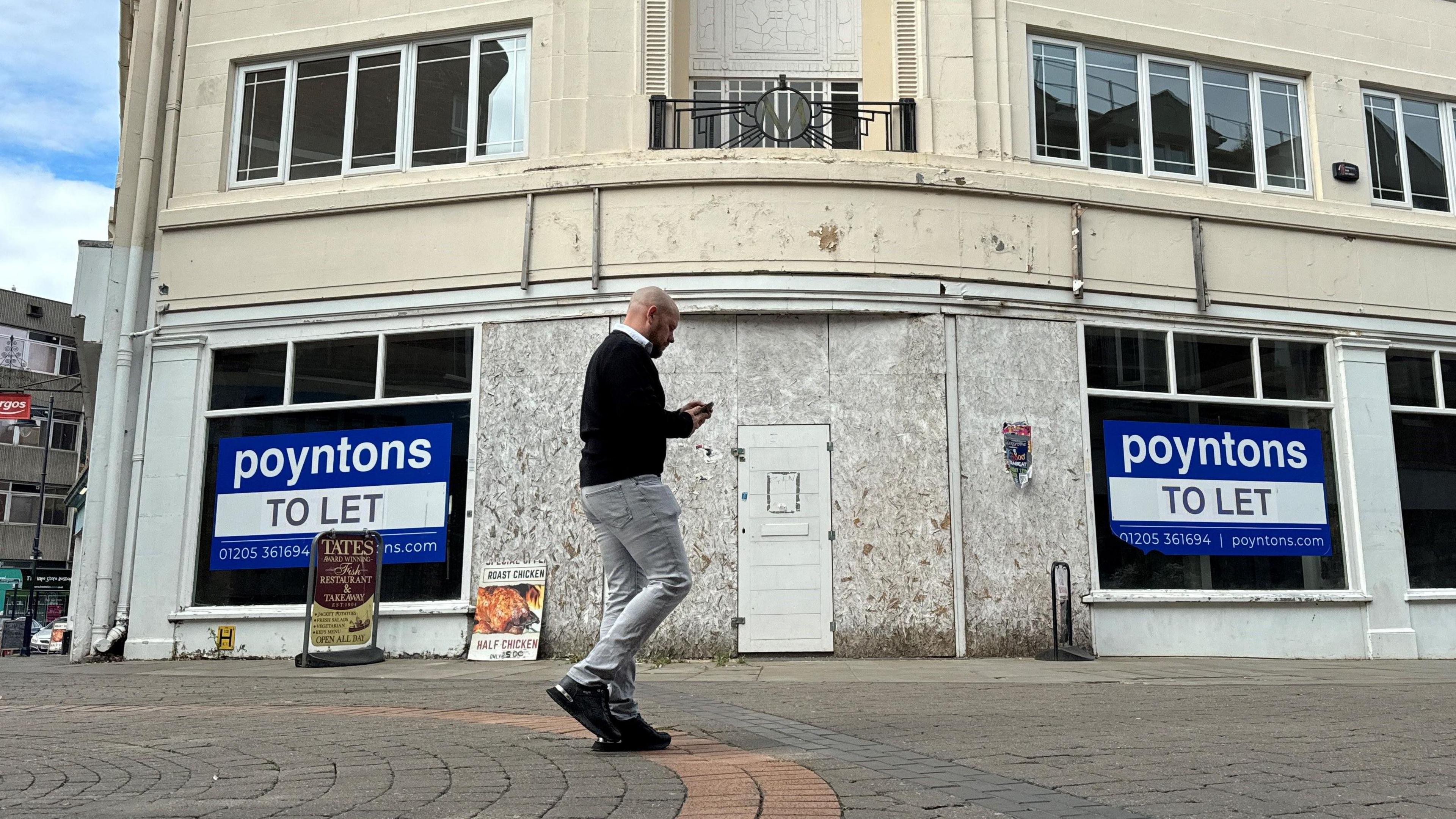
Boston's shopping streets are scarred by empty shops – and retailers fear more could close down.
- Published
More than a quarter of shops in Boston, Lincolnshire, lie empty and retailers are calling for urgent support. But some local leaders believe the answer is to pivot to leisure and heritage in search of a "new identity". The BBC spent a day in the town to ask what the future might have in store.
Boston bears the scars of its retail casualties.
A short walk through the town centre to the Market Place takes in empty shop after empty shop – some boarded up, others with "to let" signs propped up in the windows.
Look beyond the signs and there are bare walls with tell-tale marks where display cabinets have been ripped away.
"There won't be a town centre in five years if we continue the way that we are," says Lisa Fitzgerald, who manages the Pescod Square shopping centre.
Her smart, modern precinct is faring better than most of the town, with three empty units among a total of 19. But she pulls no punches about the prospects for the future.
"We are dying from the inside out and if something doesn't change drastically in the next year or two, people will stop coming into town and we will lose more and more shops."
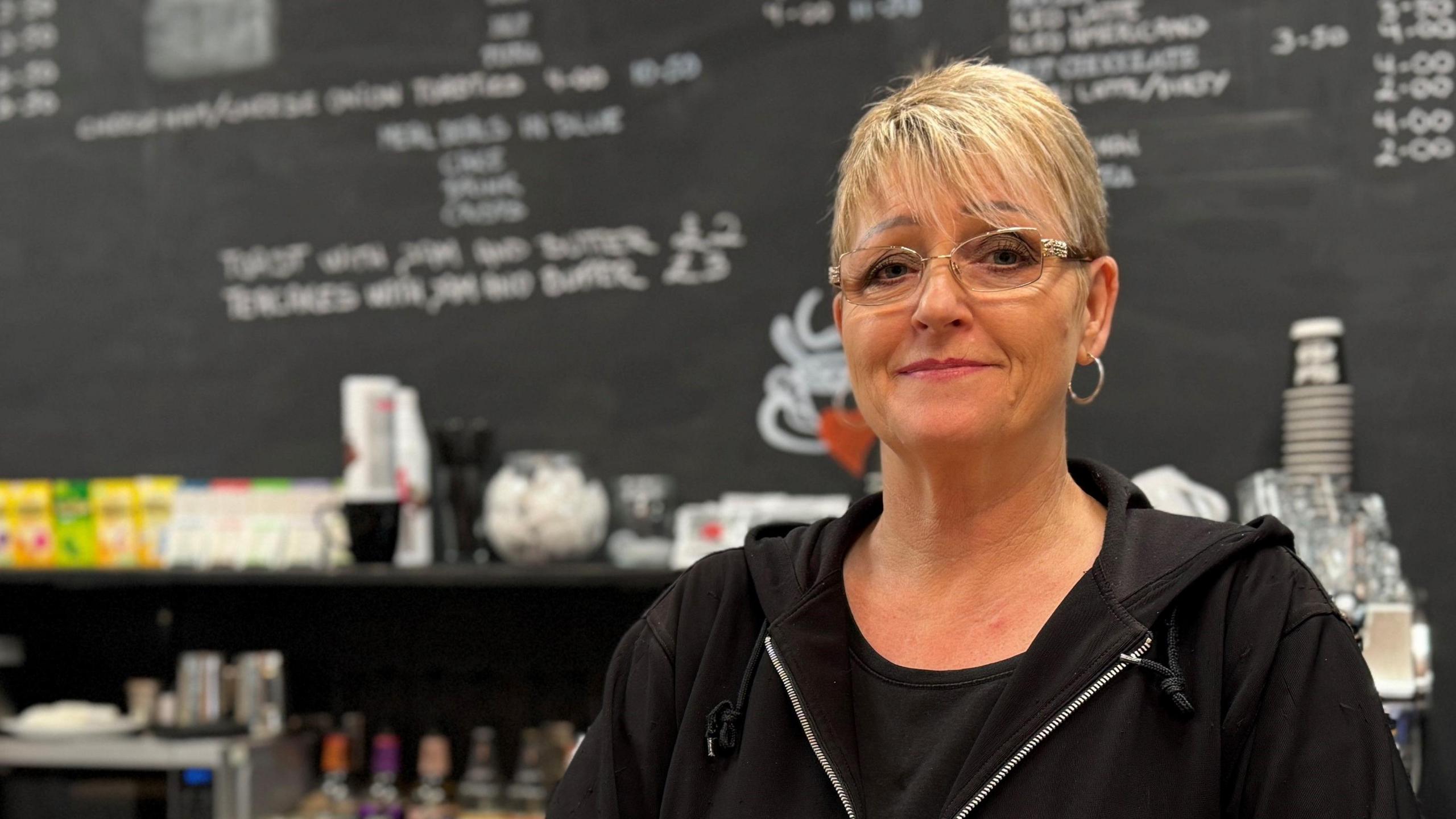
Anne Britt "loves" Boston, but is worried about the future of her business
At nearby Cafe Noglish, owner Anne Britt, 56, is steaming milk to make a cappuccino. She says business is slow.
"I love this place and I want it to succeed, but the rent, the rates and the gas and electricity are so expensive and I need more customers to survive.
"Wednesdays and Saturdays are the only good days because they are market days.
"People say they don't come into town because there's nothing here," she adds. "Well, there are shops here, but we need more."
According to Boston Borough Council, 46 out of 169 retail premises (27%) are empty, while 10% of restaurants have closed since the pandemic.
Among those lost in recent years are Marks & Spencer, HMV and Oldrids, a local department store that closed in 2020 after 216 years. WH Smith is due to follow them in December.
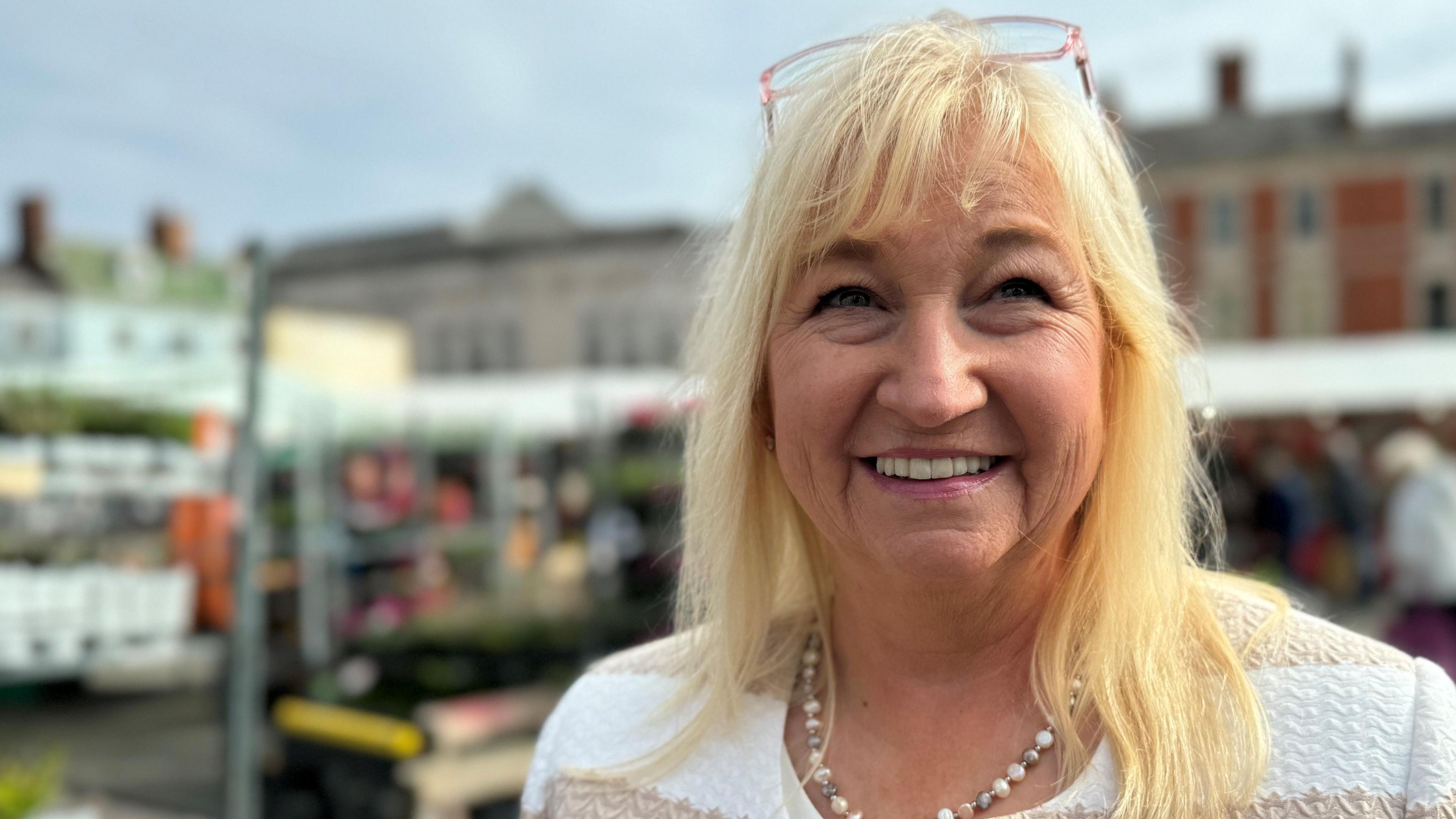
Council leader Anne Dorrian says the town is spending £39m on regeneration projects
There are success stories, including Coneys, a designer store, and independent food and jewellery shops.
But a debate is going on about how to restore the town to its former glory. Should the emphasis be on revitalising retail, or should there be a greater focus on other sectors, such as leisure?
Anne Dorrian, the council's leader, says she is "grieved" to see so many empty shops, but denies suggestions that the town centre is dying.
She is quick to list a number of local events the authority has put on and argues that shopping habits have changed, especially since the pandemic.
The answer, she believes, is to find a "new identity" for Boston – a "unique selling point".
"Is it a cafe culture, a traditional craft centre, more to do with leisure or should we build on our heritage assets?" she asks.
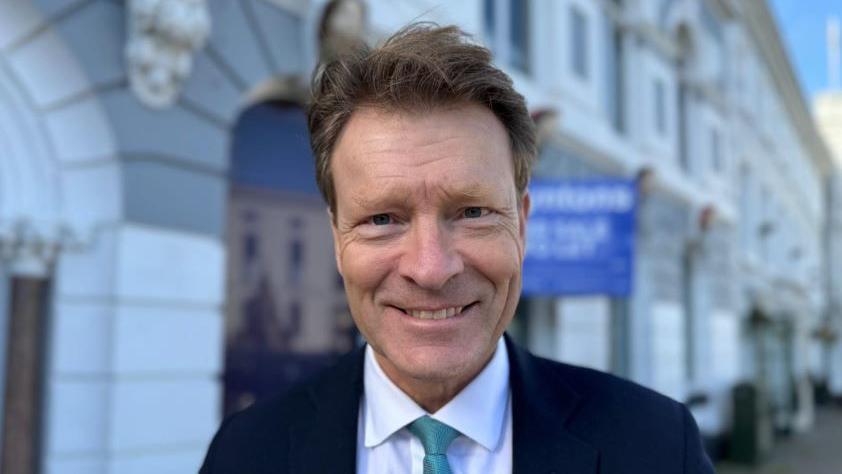
Richard Tice MP said he is "building a plan" to turn problems in Boston around "rapidly"
Richard Tice, the MP for Boston and Skegness, said there is "a major problem" with shoplifters, people being harassed and "lots of female staff not feeling safe leaving work at night".
"There is a serious perception that the town is struggling with safety and security and I’m very concerned about that," he said.
"I’m talking to businesses, I’m talking to leisure venues and retailers and I’m building up a plan because we’ve got to turn this around rapidly because otherwise it’s going to head downhill fast."
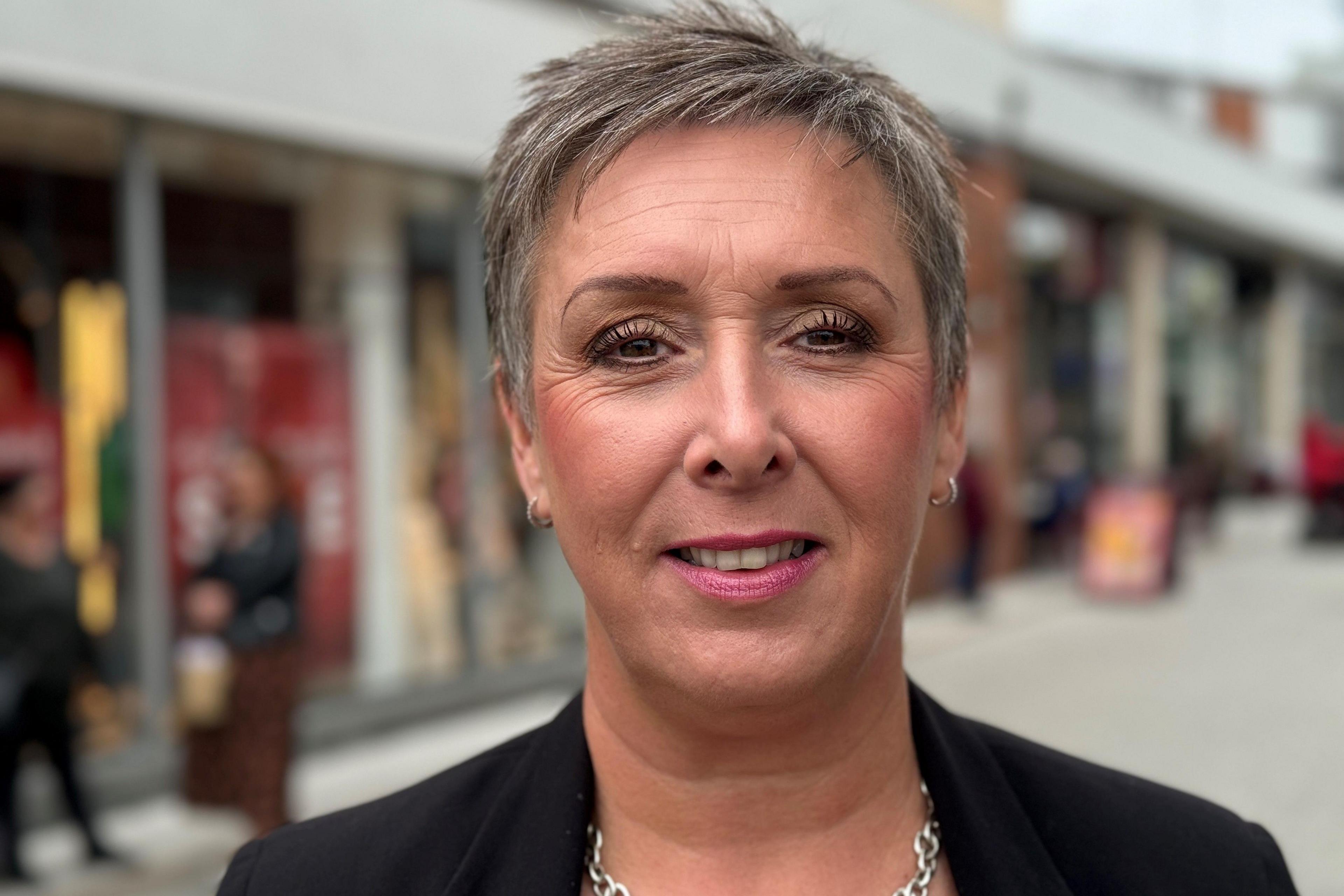
Lisa Fitzgerald, the manager of Pescod Square, believes retail is being overlooked
The council is investing £39m in regeneration projects, funded from government grants, and has commissioned research on why people visit the town.
The plans include an upgrade for the Geoff Moulder Leisure Complex and a new adult learning centre.
Rosegarth Square, in the town centre, is due to be rejuvenated with green spaces, residential units and the redevelopment of a former B&M store, while shopfronts will be replaced and new signs put up.
But a further £40m of "levelling up" grants, pledged under the previous government, are under review. The package would include £2m a year for 10 years to improve security, stage events and preserve buildings.
Back at Pescod Square, Ms Fitzgerald argues that the focus on leisure, tourism and heritage means retail is being "overlooked and neglected" when it comes to investment.
"Without that support from the whole town, it is going to continue to decline," she says.
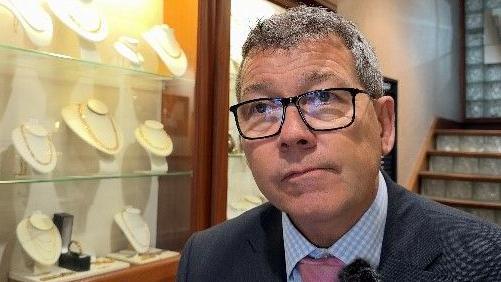
Tim Hopper says the town would benefit from free parking
It is a view shared by jeweller Tim Hopper, who owns one of Boston's longest-running businesses.
ST Hopper Ltd, in the Market Place, was founded by his grandfather in 1926.
Grainy black and white photographs, on display near the front door, capture the history of the store.
"Boston is struggling," Mr Hopper says. "We need shops that are worth coming to. We have some, but need more, and we need free parking for an hour.
"We're retail and we want people to come into the shop and I don't think the investment should just be in leisure.
"The Market Place itself should be for retail."
Listen to highlights from Lincolnshire on BBC Sounds, watch the latest episode of Look North or tell us about a story you think we should be covering here, external.
Related topics
- Published17 September 2024
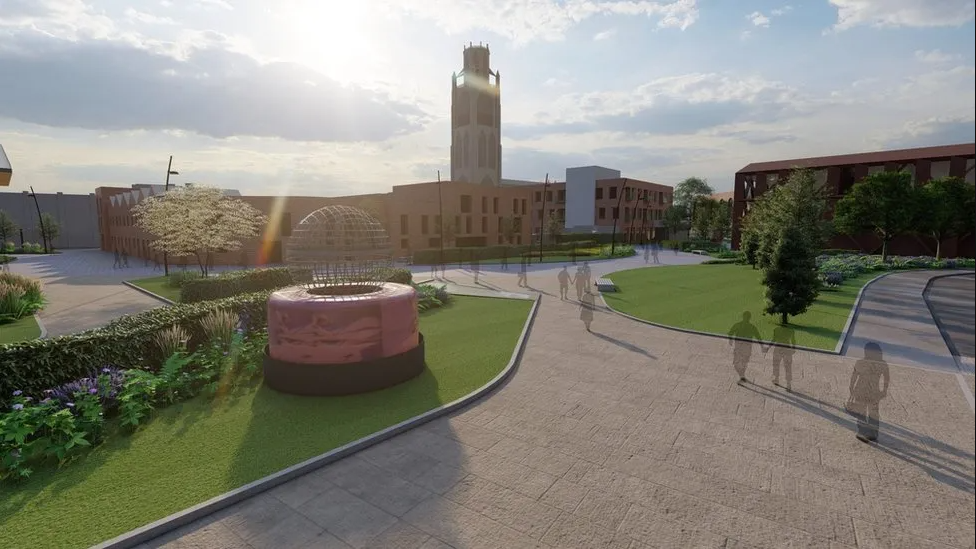
- Published26 September 2024

- Published5 July 2024

- Published16 August 2023
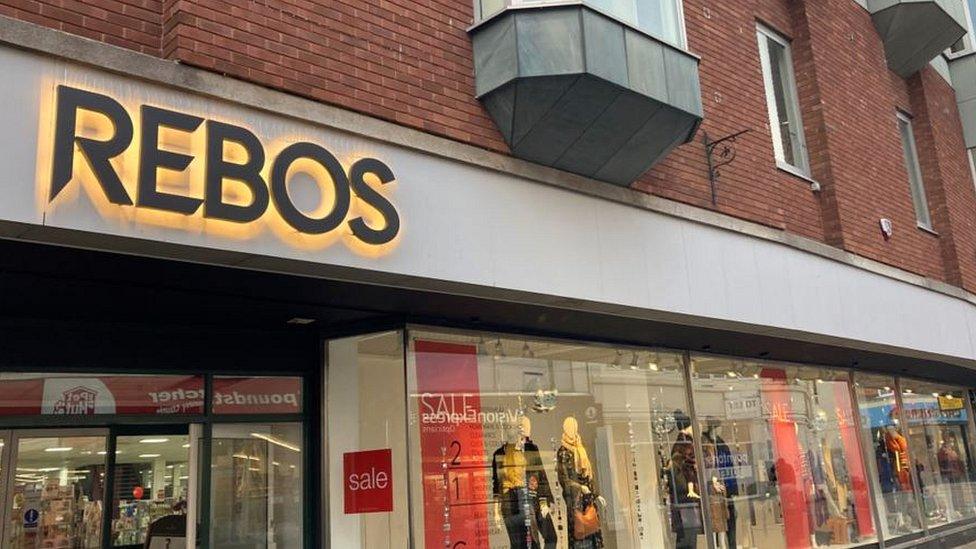
- Published1 October 2024
